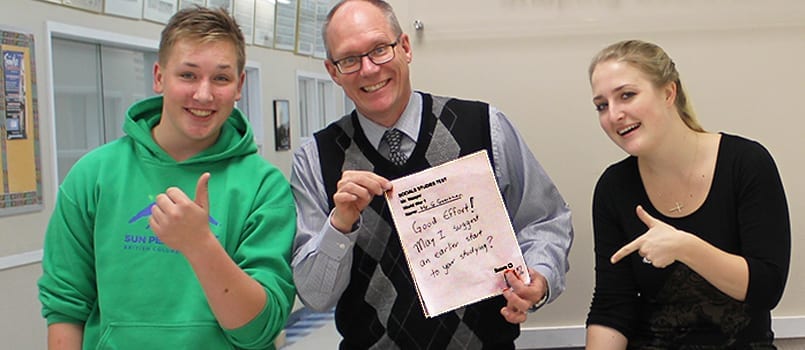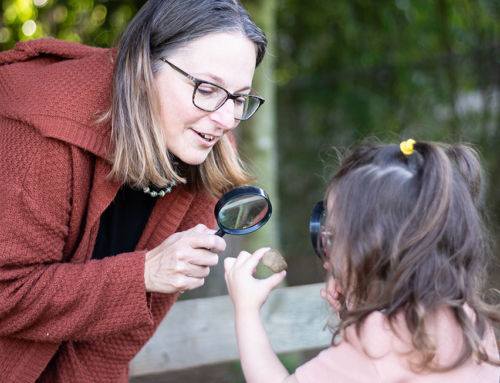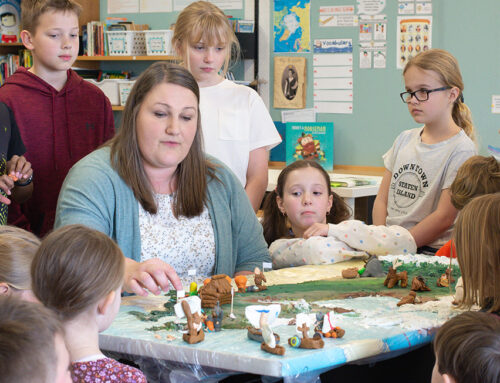I think I forgot what it was like to be a high school student. I figured the only way to really know was to become one. So I did. Today I was a student at ACS Secondary. Just for a day. (Read Part One and Part Two)
PART THREE: Passing the Test
Lunch was over, and the test had begun. Let’s face it, very few of us enjoyed the stress of taking tests to see how much we could remember from things we had memorized the night before. All the feelings of high school, university, and my MA degree came back in that one Social Studies 11 exam. I paused part way through the test and looked around. Sure enough, there were others who felt exactly like I did. I could see it in their eyes as they looked around for sympathy like a ninth grader in the staff room about to receive a painful vaccination.
I completed the multiple choice questions and felt like I had some of the answers. Then I worked on the short answer questions and tried to remember what the girls in the lobby had taught me from the study sheet at lunch. After I had done the best I could on the first half, I spent the rest of the period on the essay.
I completed the essay just as the bell rang and handed it in to the teacher. With a grin he said, “I’ll make sure to mark this one right away.” I smiled and said, “Let me know how I did, and don’t be giving me any free marks because I’m your boss.” He replied, “Oh, you don’t have to worry about that!”
As I left the room I contemplated the feelings I had about the assessment of my learning. Why did I put so much value on the grade I would receive on this test? Why did I feel like it would reflect on who I am as a person? Why did I have a nagging feeling that people would think poorly of me if they found out I didn’t do well on this test? It made me reflect on some of the unintended consequences of our education system and the impact we make on our student’s psyche by the way we assess their learning.
Moving toward an engaging pedagogy (the way we teach) which makes students actively interested in their learning is far over due in our school system. One of the great driving questions which project-based learning attempts to answer is, “How do we get students to care deeply about their own learning?” Every way we can think of to answer this question successfully is time well spent.
How did I do on the test? In high school, after listening to all the discussion in class and studying hard, I think I may have achieved a pretty good grade on this test. I received a 64% on this one. I’ll be honest, I was happy with that grade. If I got 90% on this test you may think our school is too easy. If I failed you might think our secondary school principal is a little weak intellectually.
But, maybe a more pertinent question is, “What are the implications of knowing that much of what we memorize in high school is impossible to remember decades later?”
I’m not saying we shouldn’t learn this material. There are plenty of thinking skills acquired in the process of learning (especially in Mr. Naayer’s classes) and I think we all believe that if we learn about history in the right context, perhaps we won’t repeat it. But don’t you think we should be very intentional about how much emphasis we are willing to place on memorizing things for tests? If that focus is over emphasized, will we miss out on many other important skills to teach our graduates?
This is another reason why our focus on 21st century learning is so important for our students at ACS. Learning to process information, ask good questions, solve problems, work collaboratively, understand and utilize technology, present information coherently and articulate clearly our Christian worldview are skills we believe every vocation will require.
Let’s make sure our graduates from ACS have these skills, even as they do well on tests. And, by the way, our students do well on tests. The Fraser Institute ranked us #1 in Abbotsford last year and that ranking comes mostly from our success on standardized tests. But, that’s a whole other blog article that I won’t start writing here.
I learned a lot by being a student again, 32 years after I graduated from high school. Like Daniel H. Pink reflects, “Empathy is about standing in someone else’s shoes, feeling with his or her heart, seeing with his or her eyes. Not only is empathy hard to outsource and automate, but it makes the world a better place.”






WHAT DO YOU THINK?